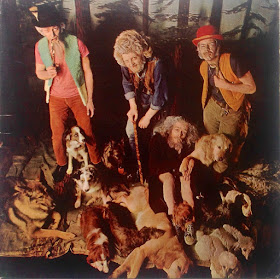Amy Winehouse
by Pete Clemons
Born in 1983 and blessed with an amazing singing voice, that I once read described as ‘an extension of her speaking voice’, Amy Winehouse grew into an incredibly confident performer. Her style was effortless and so natural. But she was also an intense character.
During her short life Amy absorbed many influences. Going right back to her earliest days Amy enjoyed watching Top of the Pops. By the age of six she loved listening to Kylie Minogue. At eight she had progressed to Madonna. Then, when she hit ten, Amy discovered hip hop duo Salt-n-Pepa who, in her words, ‘changed her life forever’. From then on in she came to love singers that carried a song and who used their voice as an instrument. During her teens Amy listened to R’n’B as the various influences continued.
Amy had a brother who was four years older than her. She clearly remembered, at aged fourteen, he had been listening to Ray Charles ‘Unchain my Heart’. Hearing this introduced her to a world of jazz music and more particularly, pianist, Thelonius Monk who Amy really took to. It was around this time that Amy began to write her own songs.
Then, at eighteen, Amy came to singer Sarah Vaughn. It was then that Amy began to enjoy and discover the drama and atmosphere within a song that singers like Sarah Vaughn could bring to it. This began the process of Amy developing her trademark style of putting herself into her own songs.
Amy did one gig with National Youth Jazz Orchestra during the year 2000. After this her manager got Amy signed up to Island Records for whom she recorded her first album. Amy Winehouse was just 20 when that first album, Frank, was released on 20 October 2003. Produced mainly by Salaam Remi, many of the songs within it were shaped by her love of jazz. Apart from two covers version’s, Amy co-wrote every song on that album.
Amy began to head out onto the road promoting the album. And one evening at the Warwick Arts Centre, early 2004, all those influences collided together on stage, at one of Amy’s earliest ever gigs. This was well before the more destructive influences got a grip of her.
Bob Caldwell, then the jazz correspondent at the Coventry Telegraph and a guy who knew his stuff, inadvertently alerted me to her via his weekly column. He wrote ‘Amy may be a new name to many but at the tender age of 20 she is said to sound like a fully-fledged professional who has spent 40 years on the jazz circuit. Her material reaches out to embrace soul and blue’s so her performances have something for everyone, and Amy’s current tour is hot on the heels of having achieved two recent Brit awards’. That was enough to tempt me along.
As the lights went down, and the band kicked in, Amy instantly became a seasoned performer as she swayed along to the beat. ‘Know You Now’, ‘I Heard Love is Blind’, ‘There is no Greater Love’, ‘You Sent Me Flying’ and her then latest single ‘In My Bed’ were all given an outing, along with several others tunes.
It was a totally natural performance. The type that, the person delivering it was maybe not fully aware, as to how good they actually were.










